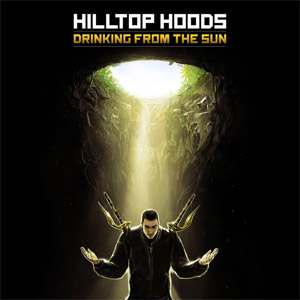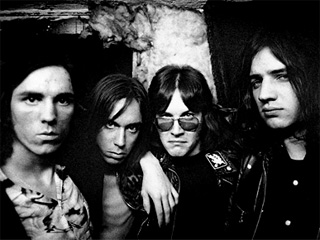Backchannel story: ‘This Video Game Has Solved The Problem of Learning Guitar’, May 2015
A story for Backchannel, the technology section of Medium.com. Excerpt below.
This Video Game Has Solved The Problem of Learning Guitar
I tried taking lessons. I tried reading guitar tabs online. The only thing that worked was Rocksmith.
Music has long struck me as a kind of magic. In terms of my life essentials, it ranks only just below oxygen, food, water, shelter and love. For 11 years I have been attempting to conjure some of that magic myself by learning to play guitar.
Yet for most of those years I practiced fitfully, and at some point I stopped improving. When my progress plateaued, so did my enthusiasm. Despite the pleasure I derive from watching a person with a six-string plugged into an amplifier, plucking and strumming to elicit beautiful noise, I seemed destined to never fully master this iconic instrument.
But then I discovered a video game that rekindled my obsession. It’s calledRocksmith, and it is designed specifically to teach people to play guitar. Earlier games, namely Guitar Hero and Rock Band, had shown that tens of millions of people could become hooked on playing fake, simplified instruments while fake, simplified musical scores scrolled down their televisions. After clocking in several jam sessions, many players even began to sound competent. But that expertise evaporated the second the game shut off.
Laurent Detoc, the North America president of Ubisoft, a game development studio, hated the gulf that separated actual and simulated musicianship. In 2011 he told the San Francisco Business Times, “I just could not believe the amount of waste that had gone in people spending so much time with plastic guitars.” His company had assigned some designers to figuring out how to make playing real guitars just as fun for gamers as jamming on a plastic replica. What they came up with is, to my mind, the purest demonstration of the power of gamification—using the principles of game play to make actual learning feel addictive. Case in point: I’ve learned to play more songs in two and a half years with Rocksmith than in the previous eight years of lackluster progress combined.
My attempts to learn guitar followed a path familiar to many teenage rock enthusiasts. They began with an acoustic guitar my parents gave me in 2004, for my sixteenth birthday, and weekly lessons with a tutor. My teacher—a bookish, chubby, middle-aged man who looked nothing like Jimi Hendrix—was prescriptive in his instruction. He told me that my left thumb mustremain pointing skyward against the back of the neck, regardless of the notes or chord shape required. This dictum puzzled and infuriated me, as none of the popular musicians I’d seen in music videos were so staid in their playing; rather, they were fluid and catlike. I wanted to be like them.
Learning to read music was an unwelcome chore, too, especially when my setlist consisted of nursery rhymes to be wrung out one note at a time. I wanted to learn guitar because an expert player sounded and looked cool, yet there wasn’t much that was cool about my tutor’s dry approach. So I quit lessons.
Many of my favorite songs—from bands such as Tool, Led Zeppelin, Metallica and Rage Against The Machine—sounded thin and bloodless when ineptly fretted on an acoustic guitar. Eventually, my wallet lined with money saved from my first job as a dishwasher at a Sizzler restaurant, I acquired the desired technological upgrade: an electric guitar—a handsome, dark blue copy of the classic Fender Stratocaster—and a 30-watt amp.
To read the full story, visit Backchannel.
Note: I also published two outtakes from this story on Medium.com, which are essentially ‘deleted scenes’ from the longer story. The first is about Rocksmith’s origins, and the second is about the process through which Ubisoft licenses popular music to appear in Rocksmith.

 Does the world really need another guitar-pop band? Brisbane has proved fertile ground for the genre of late: the Grates, the John Steel Singers and Yves Klein Blue all achieved national notoriety in recent years mining this rich vein.
Does the world really need another guitar-pop band? Brisbane has proved fertile ground for the genre of late: the Grates, the John Steel Singers and Yves Klein Blue all achieved national notoriety in recent years mining this rich vein. The best track on Hilltop Hoods’ sixth album, ‘Rattling the Keys to the Kingdom’, is built on the familiar lyrical trope of rap group pitting itself against its many competitors.
The best track on Hilltop Hoods’ sixth album, ‘Rattling the Keys to the Kingdom’, is built on the familiar lyrical trope of rap group pitting itself against its many competitors.
 What happened next is one of rock music’s strangest tales: James Williamson gave up on music entirely, graduated from California State Polytechnic University with a degree in electrical engineering, and went on to work for Sony Electronics for 25 years. Most of his colleagues had no idea of Williamson’s involvement with The Stooges, despite Iggy Pop doggedly working himself into a position of international notoriety as one of rock’s most outlandish performers. The Raw Power guitarist wanted nothing to do with it. It took a university essay written by Williamson’s son, entitled ‘Coffins In The Corner’ – in reference to his father’s guitar cases sitting up against the wall, unopened all throughout his childhood and adolescence – to provoke the guitarist to finally accept Iggy’s offer to reform the band in the wake of Ron Asheton’s death last year. It also helped that Sony offered him a generous early retirement package from his role as Vice President of Technology Standards. Now Williamson, aged 61, is touring the world, playing The Stooges’ celebrated catalogue to a new generation. The Vine connected with the guitarist ahead of the band’s appearance on the Big Day Out tour in January and February 2011.
What happened next is one of rock music’s strangest tales: James Williamson gave up on music entirely, graduated from California State Polytechnic University with a degree in electrical engineering, and went on to work for Sony Electronics for 25 years. Most of his colleagues had no idea of Williamson’s involvement with The Stooges, despite Iggy Pop doggedly working himself into a position of international notoriety as one of rock’s most outlandish performers. The Raw Power guitarist wanted nothing to do with it. It took a university essay written by Williamson’s son, entitled ‘Coffins In The Corner’ – in reference to his father’s guitar cases sitting up against the wall, unopened all throughout his childhood and adolescence – to provoke the guitarist to finally accept Iggy’s offer to reform the band in the wake of Ron Asheton’s death last year. It also helped that Sony offered him a generous early retirement package from his role as Vice President of Technology Standards. Now Williamson, aged 61, is touring the world, playing The Stooges’ celebrated catalogue to a new generation. The Vine connected with the guitarist ahead of the band’s appearance on the Big Day Out tour in January and February 2011.